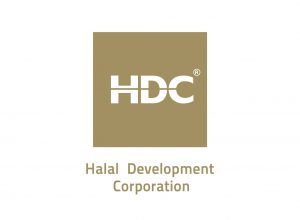 Kuala Lumpur, Malaysia (2nd April 2015) — Perceptions and reactions to the term
Kuala Lumpur, Malaysia (2nd April 2015) — Perceptions and reactions to the term
“Halal” vary widely in social and political contexts. So what does the globe think of Halal as
a process and as a whole? The answers are at once surprising and not.
At the third unified session held here today by the World Halal Summit 2015 (WHS) at the
Kuala Lumpur Convention Centre, Dr Saber Khan, Managing Director, Ethnic Focus (UK)
revealed findings from an extremely new quantitative research study conducted by Ethnic
Focus, that has never been presented before. This groundbreaking study explored the
perceptions of 7,000 non-Muslims and Muslims across 14 countries towards the notion of
Halal.
“Since Halal is becoming a global phenomenon, we need to be aware of what the world
thinks of Halal now. With ISIS and so on being a presence in the media, this is needed
more than ever before,” said Dr Saber.
Among the key findings were a perception mismatch: non-Muslims had a 66% negative
reaction to the word “Halal”, while 95% of Muslims have positive reaction. Also, 93% of
non-Muslims felt that their view of Halal products were affected by news stories such as
Charlie Hebdo or ISIS, while only 1% of Muslims were affected.
On that note, a huge majority of non-Muslims strongly felt that the media is not at all
biased against Islam and 79% of them felt that there was a connection between buying
Halal food and terrorism — while Muslims felt that these stories were strongly biased, and
none felt that Halal was linked with terrorism. Sixty-eight percent of non-Muslims felt that
Halal was anti-Western, while 93% of Muslims did not think so.
As Internet penetration worldwide increases, the question “Would you buy Halal products
online?” was posed to respondents. Only 2% of non-Muslims felt that they would, while
21% of Muslims would buy online. For the question regarding animal welfare, 70% of non-
Muslims felt that Halal slaughtering was against animal welfare, while 30% of them don’t
actually know. On the other hand, 91% Muslims thought it preserved animal welfare.
“Polite society may not articulate all this, but the study shows that they still feel it,” said Dr
Saber.
With 10 years in Islamic Finance, Rushdi Siddiqui, CEO, Zilzar Technology, Malaysia
suggested that these perceptions are affected by negative stories told by the media, as
they go straight to the emotional connection.
“Perhaps there is a way we can focus more on the ethics of Halal and Islam,” said Rushdi.
“For example, on the upstream, explaining the humane aspects, in the midstream, that
there are health benefits to humans when the blood is drained from the animal and so on.
We need to become part of the conversation, and be proactive and have a role in the
media.”
Moderator Abdalhamid Evans, Founder, HalalFocus and Conference Director, World Halal
Summit gave a similar example, like how packaging of organic products tells a “story” of
how its produced and its benefits, and perhaps this idea could be used for Halal products.
Navid Akhtar, CEO of Alchemiya Media (UK) agreed that there may be a need to realign
the perception of Halal and the Muslim community, and there is so much opportunity to do
so. “There used to be only one room for one voice, like the BBC. Now there are alternative
media. People need to see the celebration of our concepts.”
In that same vein, Ergin Beceren, Managing Director, Islamic World Entrepreneurs
Network (ISWEN), Turkey, also noted that there is no real strategy in place on how to
properly market Halal and Muslims as a community.
The Hon. Aleem Siddiqui Giuapal, Bureau Director, Economic Affairs, National
Commission of Muslim Filipinos, Philippines said that certain nations, like the Philippines,
do not fixate on the notions of Halal or Islamic Finance, rather they see it as viable
opportunities where the world will benefit. “If we don’t engage the industry, we will lose the market,” said Aleem.
The panel agreed that the positive side to all this is the massive opportunity presented:
there are over 400 million Muslims that are outside the Muslim world who are under 30.
With rising per capita income, Internet penetration, smartphones and so on, these will be
the customers in the next few decades, and they will be the ones who have the potential to
change the narrative.



:quality(70)/cloudfront-eu-central-1.images.arcpublishing.com/thenational/WC6UPQPLY5ECVKFOCP6WHWV3XU.jpg)